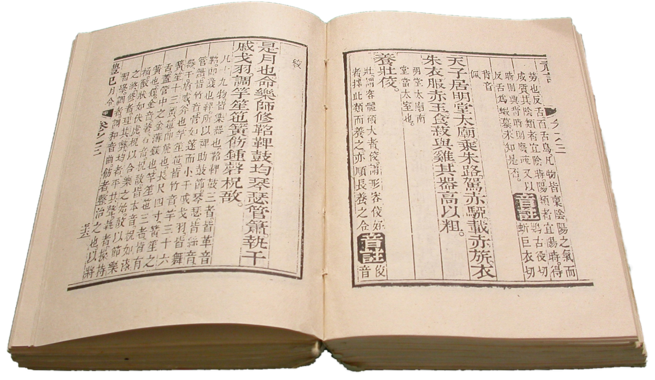

Main Difference
The main difference between Prose and Drama is that the Prose is a form of language which applies ordinary grammatical structure and natural flow of speech and Drama is a artwork intended for performance, formal type of literature
-
Prose
Prose is a form or technique of language that exhibits a natural flow of speech and grammatical structure. Novels, textbooks and newspaper articles are all examples of prose. The word prose is frequently used in opposition to traditional poetry, which is language with a regular structure with a common unit of verse based on metre or rhyme. However, as T. S. Eliot noted, whereas “the distinction between verse and prose is clear, the distinction between poetry and prose is obscure”; developments in modern literature, including free verse and prose poetry, have led to the two techniques indicating two ends on a spectrum of ways to compose language, as opposed to two discrete options.
-
Drama
Drama is the specific mode of fiction represented in performance: a play, opera, mime, ballet, etc, performed in a theatre, or on radio or television. Considered as a genre of poetry in general, the dramatic mode has been contrasted with the epic and the lyrical modes ever since Aristotle’s Poetics (c. 335 BC)—the earliest work of dramatic theory.The term “drama” comes from a Greek word meaning “action” (Classical Greek: δρᾶμα, drama), which is derived from “I do” (Classical Greek: δράω, drao). The two masks associated with drama represent the traditional generic division between comedy and tragedy.
In English (as was the analogous case in many other European languages), the word play or game (translating the Anglo-Saxon pleġan or Latin ludus) was the standard term for dramas until William Shakespeare’s time—just as its creator was a play-maker rather than a dramatist and the building was a play-house rather than a theatre.The use of “drama” in a more narrow sense to designate a specific type of play dates from the modern era. “Drama” in this sense refers to a play that is neither a comedy nor a tragedy—for example, Zola’s Thérèse Raquin (1873) or Chekhov’s Ivanov (1887). It is this narrower sense that the film and television industries, along with film studies, adopted to describe “drama” as a genre within their respective media. The term ‘Radio drama has been used in both senses—originally transmitted in a live performance. May also refer to the more high-brow and serious end of the dramatic output of radio.
The enactment of drama in theatre, performed by actors on a stage before an audience, presupposes collaborative modes of production and a collective form of reception. The structure of dramatic texts, unlike other forms of literature, is directly influenced by this collaborative production and collective reception.Mime is a form of drama where the action of a story is told only through the movement of the body. Drama can be combined with music: the dramatic text in opera is generally sung throughout; as for in some ballets dance “expresses or imitates emotion, character, and narrative action”. Musicals include both spoken dialogue and songs; and some forms of drama have incidental music or musical accompaniment underscoring the dialogue (melodrama and Japanese Nō, for example). Closet drama is a form that is intended to be read, rather than performed. In improvisation, the drama does not pre-exist the moment of performance; performers devise a dramatic script spontaneously before an audience.
-
Prose (noun)
Language, particularly written language, not intended as poetry.
“Though known mostly for her prose, she also produced a small body of excellent poems.”
-
Prose (noun)
Language which evinces little imagination or animation; dull and commonplace discourse.
-
Prose (noun)
A hymn with no regular meter, sometimes introduced into the Mass.
-
Prose (verb)
To write or repeat in a dull, tedious, or prosy way.
-
Drama (noun)
A composition, normally in prose, telling a story and intended to be represented by actors impersonating the characters and speaking the dialogue
-
Drama (noun)
Such a work for television, radio or the cinema (usually one that is not a comedy)
-
Drama (noun)
Theatrical plays in general
-
Drama (noun)
A situation in real life that has the characteristics of such a theatrical play
-
Drama (noun)
Rumor, lying or exaggerated reaction to life events; melodrama; an angry dispute or scene; intrigue or spiteful interpersonal maneuvering.
-
Drama (noun)
a play for theatre, radio, or television
“a gritty urban drama about growing up in Harlem”
-
Drama (noun)
plays as a genre or style of literature
“Renaissance drama”
-
Drama (noun)
the activity of acting
“drama school”
“teachers who use drama are working in partnership with pupils”
-
Drama (noun)
an exciting, emotional, or unexpected event or circumstance
“a hostage drama”
“an afternoon of high drama at Wembley”
